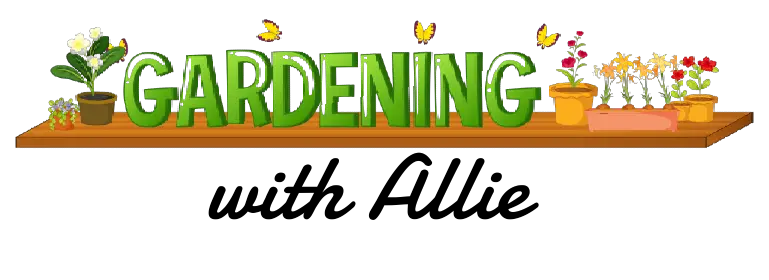Many people consider slugs to be slimy and repulsive creatures. They eat the leaves and roots of the plants in your garden and kill them. It’s not surprising that you are worried if you find them in your compost bin. Are slugs bad for compost?
Slugs are not bad for compost. They don’t harm the compost pile or bin; slugs help promote the composting process by eating and breaking down the plant matter. Because the compost pile provides an environment in which they thrive and an abundant food supply, it’s improbable they will leave and migrate to your garden.
Now that you know slugs are good for compost, you may have other questions. Let’s dive in to learn more about why slugs like compost, how they help with decomposition if there can be too many slugs in the compost bin, and more.

Why Are There Slugs in My Compost?
Slugs need a damp and dark environment. They love feeding on wilted and decaying kitchen waste. So, your compost pile or bin is the perfect home for slugs. Having your compost pile or bin on the ground will allow slugs to get into the compost so they can do their job.
However, if the compost is teeming with slugs, this can indicate that it’s too wet. Add more ‘brown’ material – dry leaves, newspaper, cardboard, straw, or sawdust. Then turning the compost over will help it soak up excess moisture and aerate it.
The slugs will burrow down a little into the compost during the day and come out at night to feed, which helps them avoid predators such as birds and lizards and keeps them from drying out.
Why Are Slugs Good for Compost?
Slugs work with snails and worms to decompose the plant material, which helps create compost you can use in your garden faster than without their assistance.
The slugs will work on the top layer of the compost, while the worms will work on a lower layer. This means that over time, and as the pile is turned over, all the compost is broken down.
To keep the slugs happy and in the compost bin, continue to add new plant waste.
If lizards can get into the bin, they will eat slugs, worms, flies, and insects. They help keep these populations in check.
The slugs will lay eggs, which will become food for beetles. If the eggs are crushed, they will become part of the compost.
Some people will add slugs to their compost bin to help speed up the decomposition process. When picking them off garden plants, they will drop them onto the compost, whether dead or alive.
Can I Use Compost That Has Slugs In It?
When applying the compost, some people worry about spreading slugs and their eggs onto their garden. You don’t have to worry about that because:
- When the compost is turned over, the eggs will be crushed or relocated to the drier compost at the bottom. They can’t hatch in this drier material and will die.
- You’ll use that drier compost rather than the damp decaying plant material.
- Beetles, birds, and other critters will eat any exposed slugs and eggs after applying the compost to your garden.
- The eggs will be crushed from the waste on top of them as you spread the compost.
Should I Remove Slugs From My Compost?
Since you’ve learned that slugs are beneficial, there is no need to remove them. However, you may want to reduce the population if your compost has too many slugs. Or, if you still don’t like the idea of slugs in your compost bin, there are several ways to manage them.
As stated above, the presence of many slugs means your compost may be too wet. First, add what’s needed to balance the moisture in it. Second, turn over the contents regularly as this will move the eggs to lower parts of the compost where there’s less chance they will hatch. Doing both will help prevent the slugs from multiplying too quickly.
How Can I Get Rid of Slugs in Compost?
The one thing you should not do is use slug pellets or pesticides. The chemicals will not only kill the slugs but microbes and other creatures that are necessary for turning the plant waste into compost.
Pick Them Out at Night
Slugs are more active at night and stay near the top of the bin where the food is. You can go out at night with gloves on and pick them out of the bin. You could also use a trowel or tongs.
You can then drop them into a soapy or salty water bucket, squish them with your boot, or feed them to chickens.
Use Slug Traps
Place traps near your compost bin to lure slugs so they don’t get to it.
You’ve probably heard of using a bowl of beer to attract slugs. Dig a hole for the bowl so the lip is at ground level, and fill it with beer. The slugs will fall into the beer and drown.
Another to attract slugs is melon rinds, which they love. Place them around the bin before dark and wait a few hours. Then go out, and they will be filled with slugs.

Use a Slug-Proof Compost Bin
Having your compost bin above the ground or using one completely enclosed will prevent slugs from getting into it. A compost tumbler is another type of bin that slugs can’t get into
Hot Composting
Hot composting is where the ratio of carbon to nitrogen is optimized to get the pile to heat up to 130-140 degrees to kill weed seeds and harmful bacteria. You must monitor the temperature and moisture level (daily is preferred).
Slugs can’t tolerate these high temperatures.
How to Dispose of Dead Slugs
You can add the dead slugs to the compost pile if you only have a few and didn’t kill them with salty water. If you put in too many, they will smell and could attract flies.
You can scatter them in your yard to decompose or be eaten, bury them, or put them in the trash.
Final Thoughts
Although slugs are slimy and can do a lot of damage to your garden, they do have a function in your compost bin. They help to break down the organic matter and speed up the process of converting it into compost. They also are a food source for some critters, such as beetles, lizards, birds, and chickens.
If you maintain a balance of the green and brown material in your compost bin so that it’s not too wet, the slug population should not get out of hand. If their numbers increase too much, you’ve learned a few ways to remove some of them.
If you start composting, consider the type of bin you want to use. Some, like a tumbler style or a fully enclosed composter, will keep slugs out. If you get one that sits on the ground and is accessible to slugs, then they can get in to do their part in the composting process.

Hi there, my name is Allie and welcome to my blog; GareningWithAllie!
Much of what you see written here is just our personal experiences with gardening. Along with the content I write here, there is also a unique collection of gardening topics covered by some of our close friends. I hope you find everything you read here to be helpful, informative, and something that can make your gardening journey the most lovely experience ever! With that said, Happy Gardening!
